Why Vegan? Exploring the Many Benefits of a Plant-Based Lifestyle


If you’ve ever considered going vegan, you’re not alone. In recent years, vegan living has become increasingly popular, with an estimated 80 million vegans worldwide, and more and more people choosing to adopt a plant-based lifestyle every day. But what exactly is a vegan, and why are so many people making the switch?
At its core, a vegan lifestyle seeks to avoid the exploitation and harm of animals. This means avoiding the consumption of animal-based meat, dairy, eggs, and other animal-derived products such as honey. For many people, choosing to be vegan goes beyond dietary choices and extends to compassionate lifestyle considerations as well. This includes things like:
- Clothing and Accessories: leather-free shoes, belts, bags, wallets, etc.
- Bath, Body, and Beauty Products: cruelty-free makeup, skincare, deodorant, shampoo, lip balm, soap, etc.
- Home and Cleaning Products: cleaning sprays, toilet cleaners, etc.
- Art Supplies and Crafts: crayons, markers, play dough, etc.
But why do people choose to become vegan? While some people choose to be vegan for ethical reasons, others may be drawn to it for its environmental and health benefits, or for social justice reasons.
By choosing a plant-based diet, you have the power to change the world, one bite at a time. You can transform your health, the planet, and the lives of animals.
Table of Contents
- Ethical Considerations of Going Vegan
- Environmental Impact
- Health Benefits of Going Vegan
- Social Justice Issues
- Here Are 15 Specific Reasons to Choose Vegan
- 1. Reduce your carbon footprint
- 2. Save water
- 3. Lower your risk of chronic diseases
- 4. Prevent animal cruelty
- 5. Support food justice
- 6. Help conserve biodiversity
- 7. Reduce food waste
- 9. Lower your grocery bill
- 10. Support global food security
- 11. Combat antibiotic resistance
- 12. Reduce water pollution
- 13. Save animals from extinction
- 14. Promote healthy aging
- 15. Support ethical farming practices
- Making the Transition to Veganism
- Tips for Going Vegan
- The Time Is Now
Ethical Considerations of Going Vegan
For many people, consuming animal products comes into conflict with their values and beliefs about animal welfare. Animal agriculture is often characterized by inhumane and cruel practices, including confinement, overcrowding, and the use of hormones and antibiotics. By choosing a plant-based diet, you’re actively supporting a more compassionate and humane food system that respects the inherent value of all animals.
The vegan lifestyle also aligns with principles of justice and equality. Many people find it difficult to reconcile the idea of animal welfare with the fact that billions of animals are raised and slaughtered every year for human consumption. This system disproportionately impacts marginalized communities, including low-income individuals and people of color. By embracing a vegan lifestyle, you’re supporting a more just and equitable food system that respects the rights of both humans and animals.
In addition, going vegan is rooted in the idea of non-violence. Many people believe that violence against animals is ethically wrong and that humans have a moral responsibility to protect the vulnerable and defenseless. Choosing a plant-based diet reflects a commitment to non-violence and compassion, promoting a world where all beings are treated with respect and dignity.
Ultimately, choosing vegan is about taking responsibility for one’s actions and the impact they have on the world. When you go vegan, you’re taking a stand for what you believe in and supporting a more ethical, sustainable, and compassionate food system.
With the growing awareness of animal welfare issues and the environmental impact of animal agriculture, more and more people are choosing to go vegan as a way to live in harmony with their values and create a better future for all.
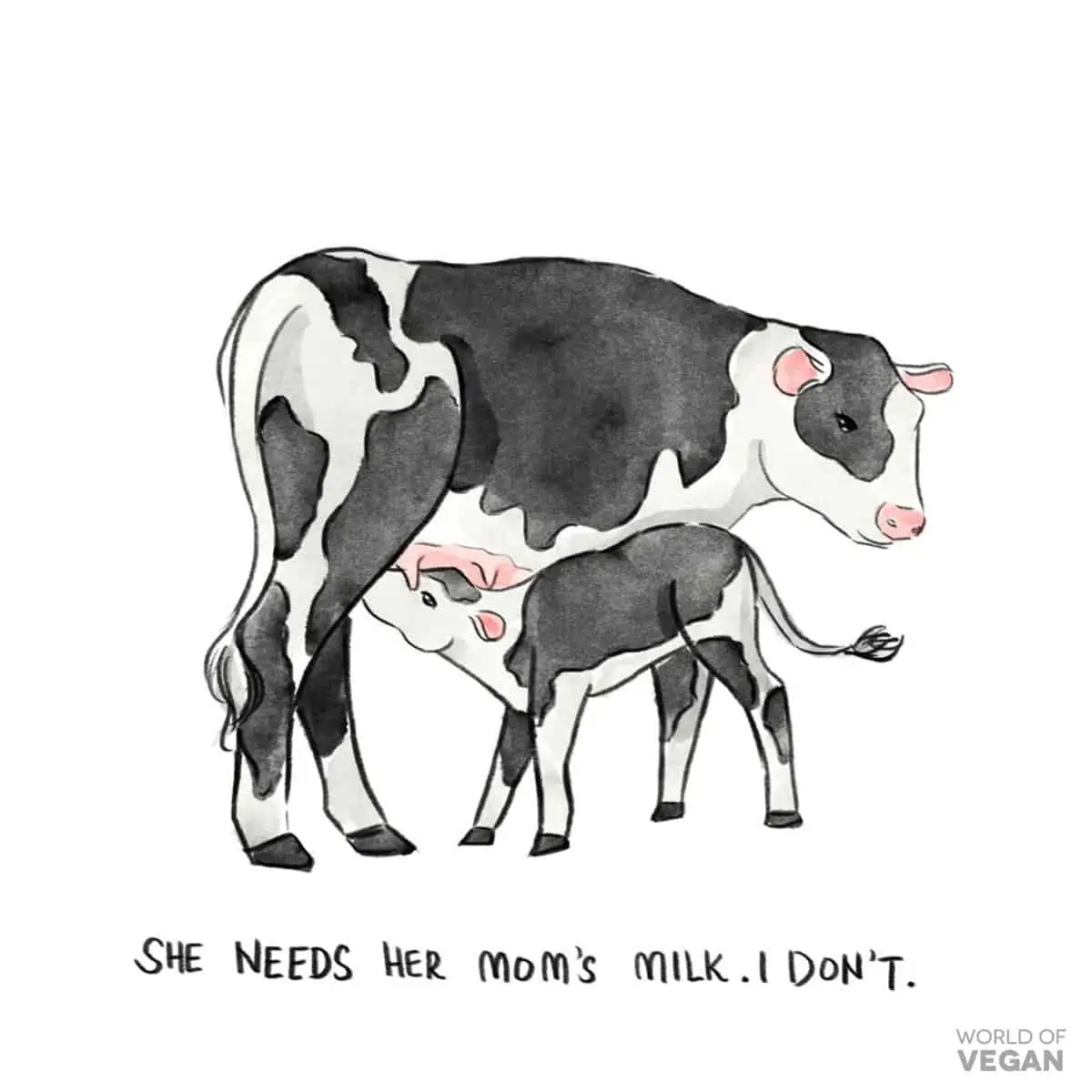
Environmental Impact
In addition to ethical considerations, the environmental impact of animal agriculture is a major reason to go vegan. Animal agriculture is a resource-intensive industry that requires large amounts of land, water, and energy. According to the Worldwatch Institute, it takes 2,500 gallons of water to produce one pound of beef, compared to just 25 gallons to produce a pound of wheat.
Additionally, animal agriculture is a major contributor to water pollution, as animal waste and chemicals from feed and fertilizer can enter waterways and contaminate drinking water. The Environmental Protection Agency has identified animal agriculture as a major source of water pollution in the United States.
By choosing a plant-based diet, individuals can reduce their water and land use, as well as their carbon footprint. According to a study by the University of Oxford, a vegan diet can reduce an individual’s carbon footprint by up to 73% compared to a meat-based diet.
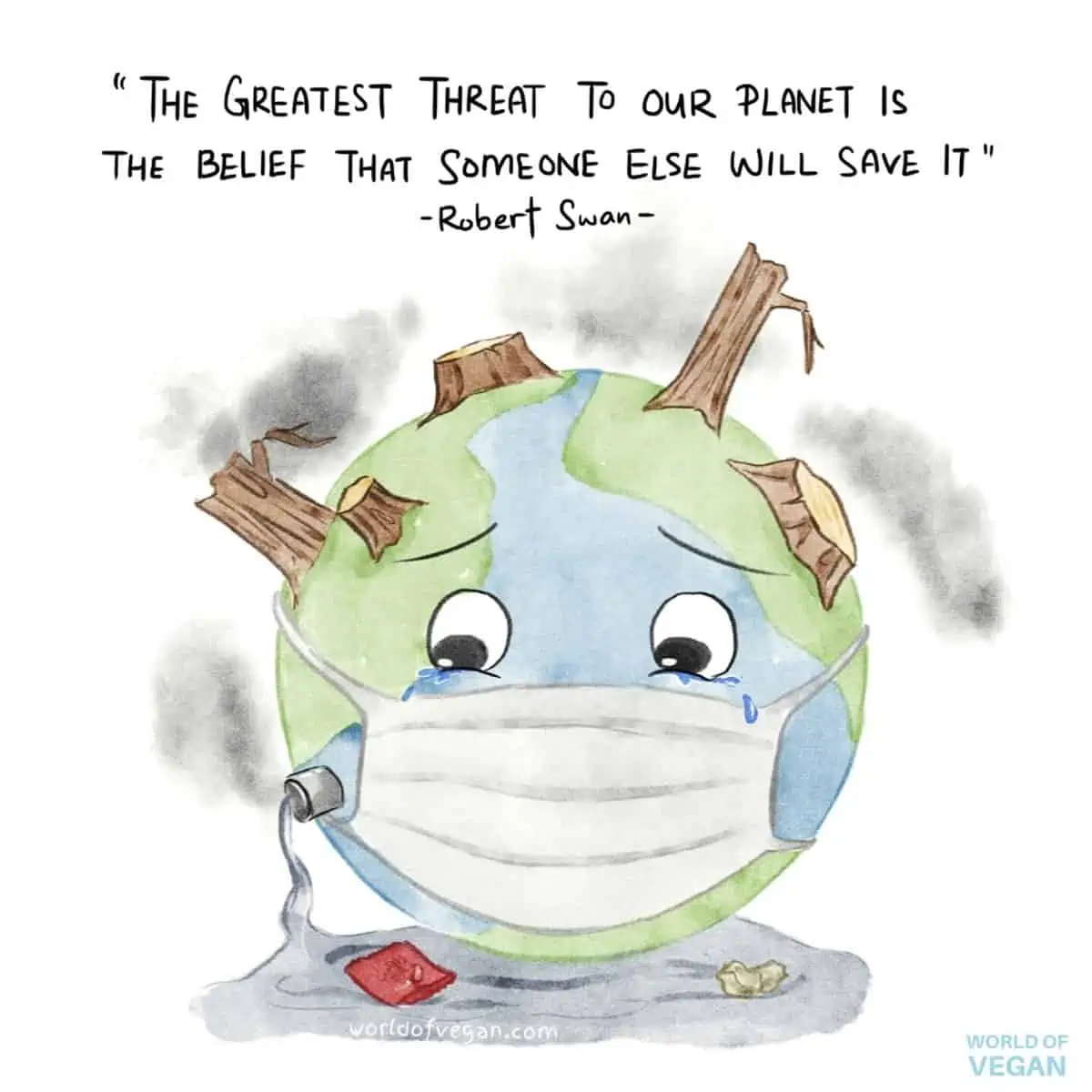
Health Benefits of Going Vegan
Along with ethical and environmental considerations, a vegan diet can also offer a range of health benefits. Plant-based diets are rich in fiber, vitamins, minerals, and antioxidants, which can help reduce the risk of chronic diseases such as heart disease, Type 2 diabetes, and cancer.
Studies have shown that vegans tend to have lower cholesterol levels and blood pressure than non-vegans, which can help reduce the risk of heart disease. Doctors like Dr. Esselstyn have demonstrated the effectiveness of plant-based diets in reversing heart disease and improving overall health outcomes. Additionally, plant-based diets have been shown to be effective in managing and even reversing type 2 diabetes, as they are low in saturated fat and high in fiber and complex carbohydrates.
A vegan diet can also help with weight management, as plant-based foods tend to be lower in calories and higher in fiber than animal products. According to a study published in the Journal of General Internal Medicine, individuals following a vegan diet lost an average of 4.3 kg over 18 weeks, compared to an average of 3.2 kg for those following a control diet.
There are many doctors and health experts who advocate for a plant-based diet as a way to improve health outcomes and reduce the risk of chronic disease. One of the most well-known is Dr. Caldwell Esselstyn, a cardiologist who has been at the forefront of research into the relationship between diet and heart health. Dr. Esselstyn has demonstrated that a whole-food, plant-based diet can not only prevent heart disease, but can even reverse it in some cases.
Other doctors and health experts who promote a plant-based diet include Dr. Michael Greger, author of the book “How Not to Die,” and Dr. Dean Ornish, a physician and researcher who has conducted extensive studies on the health benefits of plant-based diets.
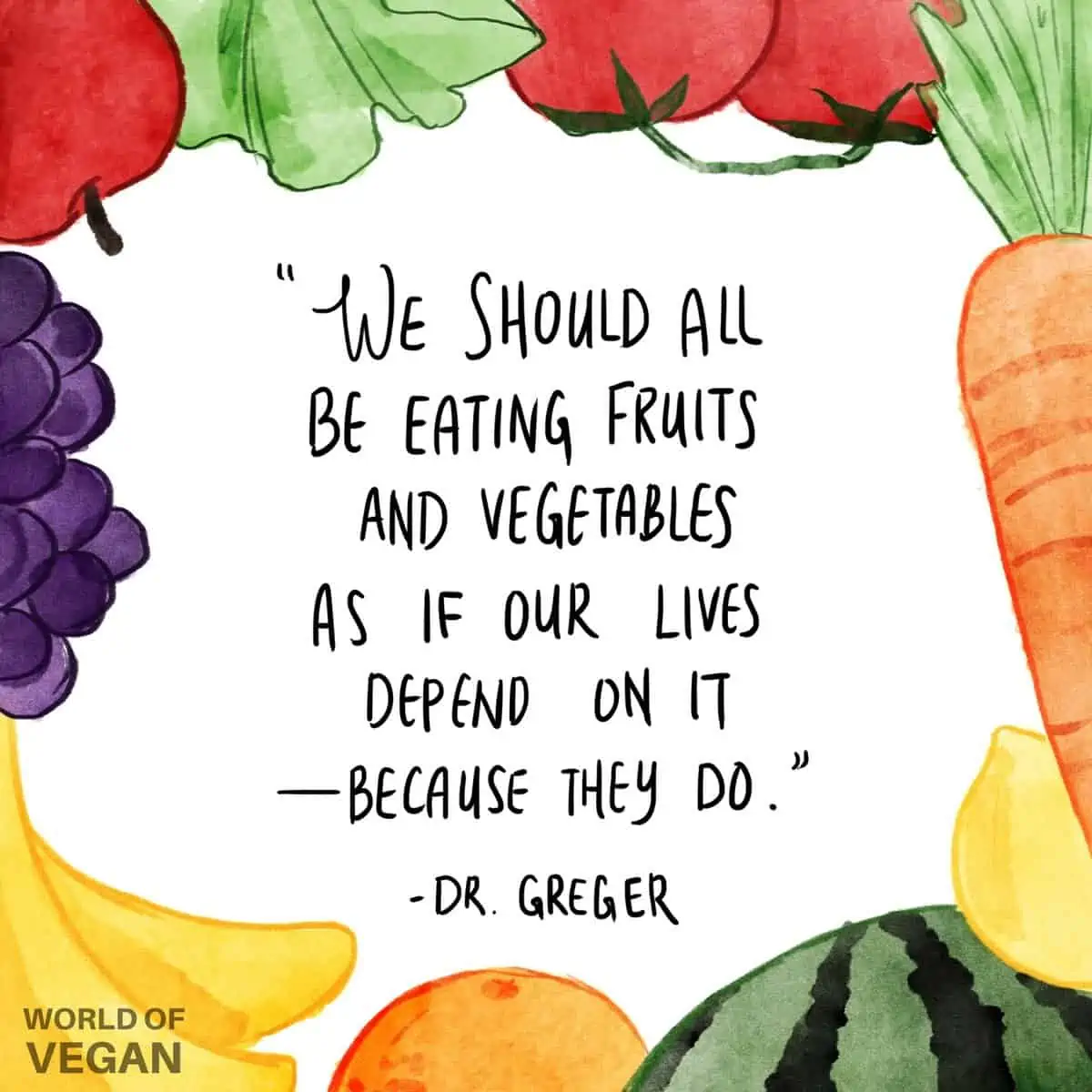
Social Justice Issues
Finally, some individuals choose to go vegan for social justice reasons.
The production and consumption of animal products can have significant social justice implications. In many countries, animal agriculture is associated with exploitative labor practices, including low wages, long working hours, and unsafe working conditions. In some cases, workers may also be subjected to physical and emotional abuse.
Furthermore, animal agriculture is often associated with land grabs and displacement of indigenous communities. The expansion of animal agriculture can lead to the destruction of local ecosystems and the displacement of communities that rely on those ecosystems for their livelihoods.
By choosing a vegan diet, individuals can support social justice initiatives that prioritize fair labor practices and land use, as well as support local and sustainable food systems.
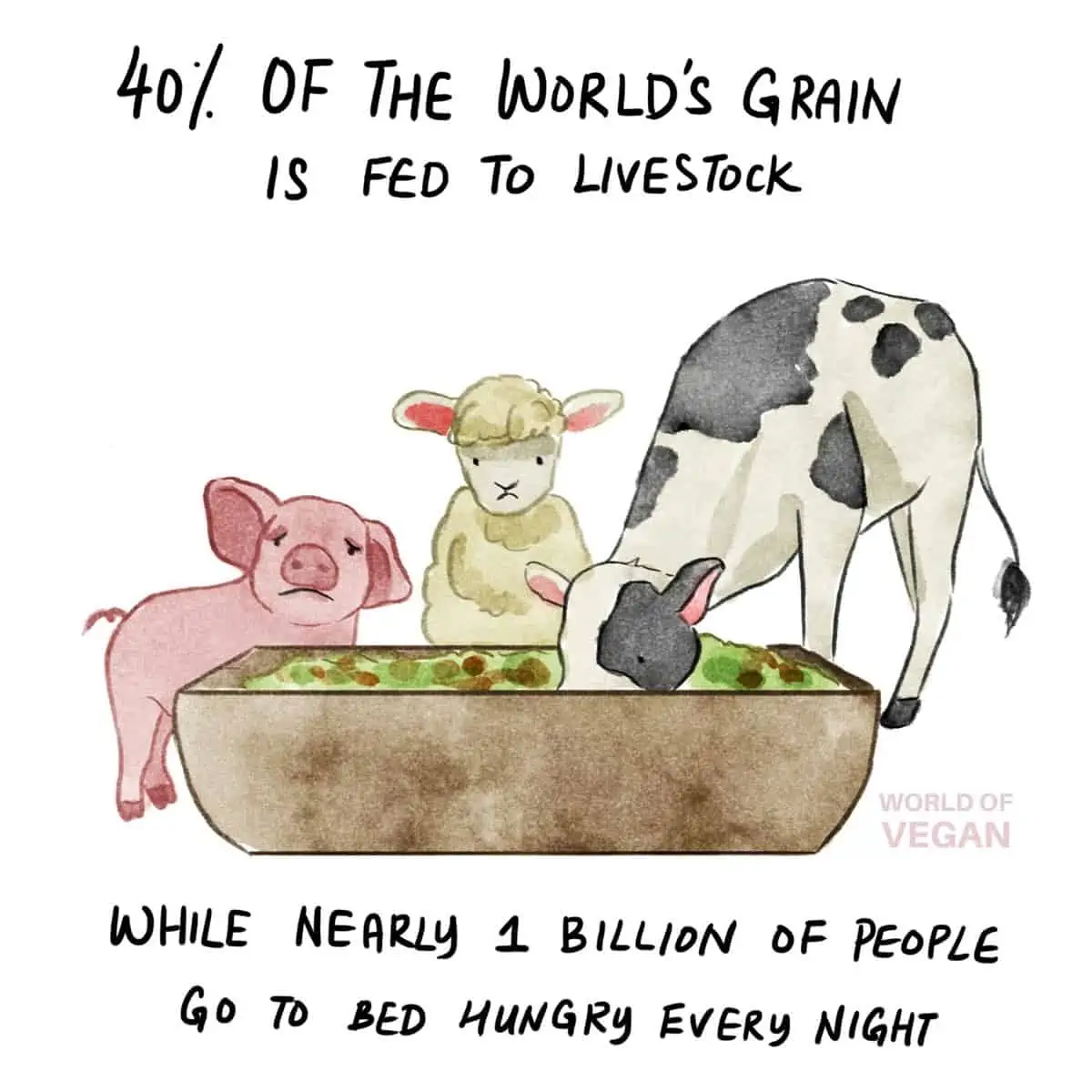
Here Are 15 Specific Reasons to Choose Vegan
1. Reduce your carbon footprint
Animal agriculture is a leading cause of greenhouse gas emissions, responsible for more emissions than the entire transportation sector. By going vegan, you can reduce your carbon footprint and contribute to a healthier planet.
2. Save water
Producing animal products requires significantly more water than producing plant-based foods. For example, it takes approximately 660 gallons of water to produce a single hamburger, compared to just 200 gallons for a soy burger.
3. Lower your risk of chronic diseases
Research shows that a plant-based diet can lower your risk of chronic diseases such as heart disease, diabetes, and certain types of cancer. This is because plant-based foods are typically lower in saturated fat and higher in fiber and other nutrients.
4. Prevent animal cruelty
By choosing a vegan lifestyle, you’re actively taking a stand against animal cruelty. Animal agriculture involves the exploitation and mistreatment of billions of animals every year, and by abstaining from animal products, you’re refusing to support this industry.
5. Support food justice
Factory farming is often associated with exploitative labor practices, low wages, and unsafe working conditions. By supporting plant-based foods, you’re helping to promote food justice and support ethical and sustainable farming practices.
6. Help conserve biodiversity
Animal agriculture is a leading cause of deforestation, habitat loss, and biodiversity loss. By choosing plant-based foods, you’re supporting a more sustainable and ethical food system that helps conserve the earth’s precious natural resources.
7. Reduce food waste
Approximately one-third of all food produced in the world is wasted, and animal products are among the most frequently wasted foods. By choosing plant-based foods, you’re reducing food waste and helping to ensure that resources are used more efficiently.
8. Improve your digestion
A plant-based diet is often higher in fiber, which can help improve your digestion and prevent constipation. Additionally, many plant-based foods contain beneficial probiotics and enzymes that can promote a healthy gut microbiome.
9. Lower your grocery bill
Plant-based foods can be significantly cheaper than animal products, especially when you purchase in-season and locally-grown produce. This means that by going vegan, you may be able to save money on your grocery bill. One great resource for figuring out what to shop for when going vegan is our Vegan Grocery List guide, which provides a comprehensive list of vegan-friendly items to help you plan your shopping trips.
10. Support global food security
With a growing population and limited resources, food security is becoming an increasingly important issue. By choosing plant-based foods, you’re helping to support a more sustainable and equitable food system that can better address global food security challenges.
11. Combat antibiotic resistance
The overuse of antibiotics in animal agriculture is a major contributor to antibiotic resistance, a serious public health threat. By reducing your consumption of animal products, you’re helping to combat antibiotic resistance and promote more responsible antibiotic use.
12. Reduce water pollution
Animal waste from factory farms can contaminate waterways and contribute to water pollution, posing a threat to both human and animal health. By choosing plant-based foods, you’re helping to reduce water pollution and promote a more sustainable and clean environment.
13. Save animals from extinction
The production of animal products often leads to habitat destruction and the loss of biodiversity, which can put many animal species at risk of extinction. By choosing plant-based foods, you’re helping to support a more sustainable and ethical food system that helps conserve wildlife and protect endangered species.
14. Promote healthy aging
Studies show that a plant-based diet can promote healthy aging and improve cognitive function. This is because plant-based foods are often rich in antioxidants and other nutrients that can help protect against age-related diseases such as Alzheimer’s and dementia.
15. Support ethical farming practices
By going vegan, you’re supporting ethical farming practices that prioritize animal welfare and the environment. This includes supporting small, independent farmers who prioritize sustainable and humane farming methods over industrial-scale animal agriculture.
Making the Transition to Veganism
If you’re interested in going vegan, there are plenty of resources available to help make the transition easier. One of the best ways to get started is by incorporating more plant-based foods into your diet. This can include fruits, vegetables, whole grains, nuts, and seeds.
There are also many plant-based alternatives to traditional animal products, such as tofu, tempeh, seitan, and plant-based milks, cheeses, and meats. These alternatives can make it easier to enjoy your favorite foods without relying on animal products.
It’s important to note that going vegan doesn’t have to be an all-or-nothing proposition. Many people find it helpful to start by reducing their consumption of animal products, and gradually transitioning to a fully plant-based diet over time. There’s no one-size-fits-all approach, so it’s important to find a method that works best for you.
Tips for Going Vegan
If you are considering going vegan, be sure to visit our How to Go Vegan Guide. To get you started, here are just a few quick tips and strategies that can help make the transition smoother and more successful.
Educate Yourself
Before making the transition to a vegan lifestyle, it is important to educate yourself about the ethical, environmental, and health implications of animal agriculture and the benefits of a vegan diet. This can help strengthen your commitment to vegan living and provide you with the knowledge and tools you need to make informed decisions about your food choices.
A great way to start is by:
- watching these fantastic vegan documentaries
- reading these plant-based diet books
- listening to podcasts like the Plant-Powered People Podcast
- getting some vegan cookbooks
Plan your Meals
One of the keys to success on a vegan diet is planning ahead. Take the time to plan out your meals and snacks for the week, making sure to include a variety of nutrient-dense plant-based foods. This can help ensure that you are meeting your nutritional needs and avoid feeling deprived or hungry.
If you’re meal planning on a budget, our Plant-Based on a Budget Meal Plans can help you save money while eating delicious healthful vegan meals.
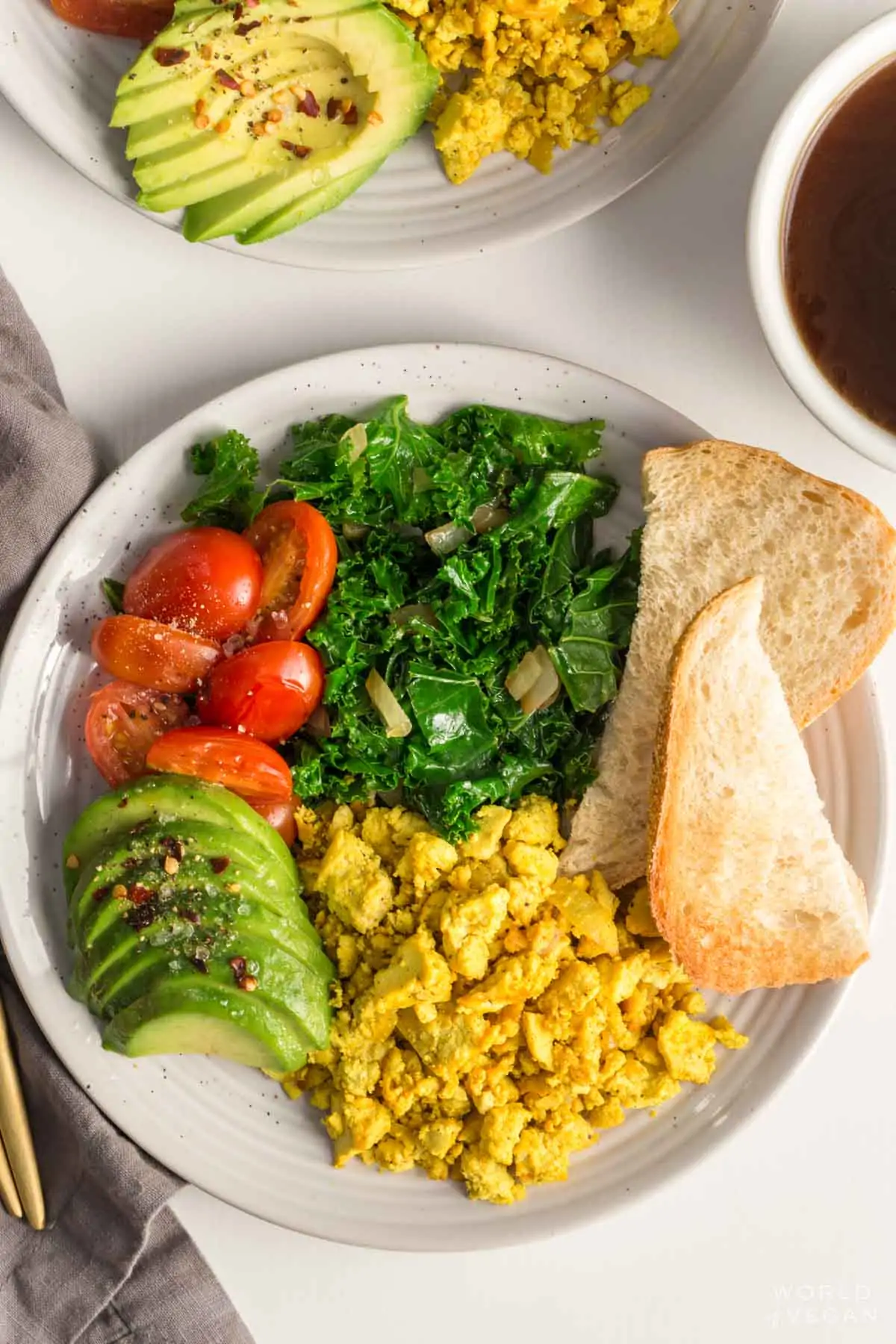
Find Vegan Versions of Your Favorite Foods
There are many vegan substitutes available for traditional animal-based products, including plant-based milks, cheeses, and meats.
Discover your favorite vegan yogurt, dairy-free ice cream, butter, coffee creamer, burgers, hot dogs, and other essentials. Experiment with different brands and products to find those that you enjoy and incorporate them into your meals.
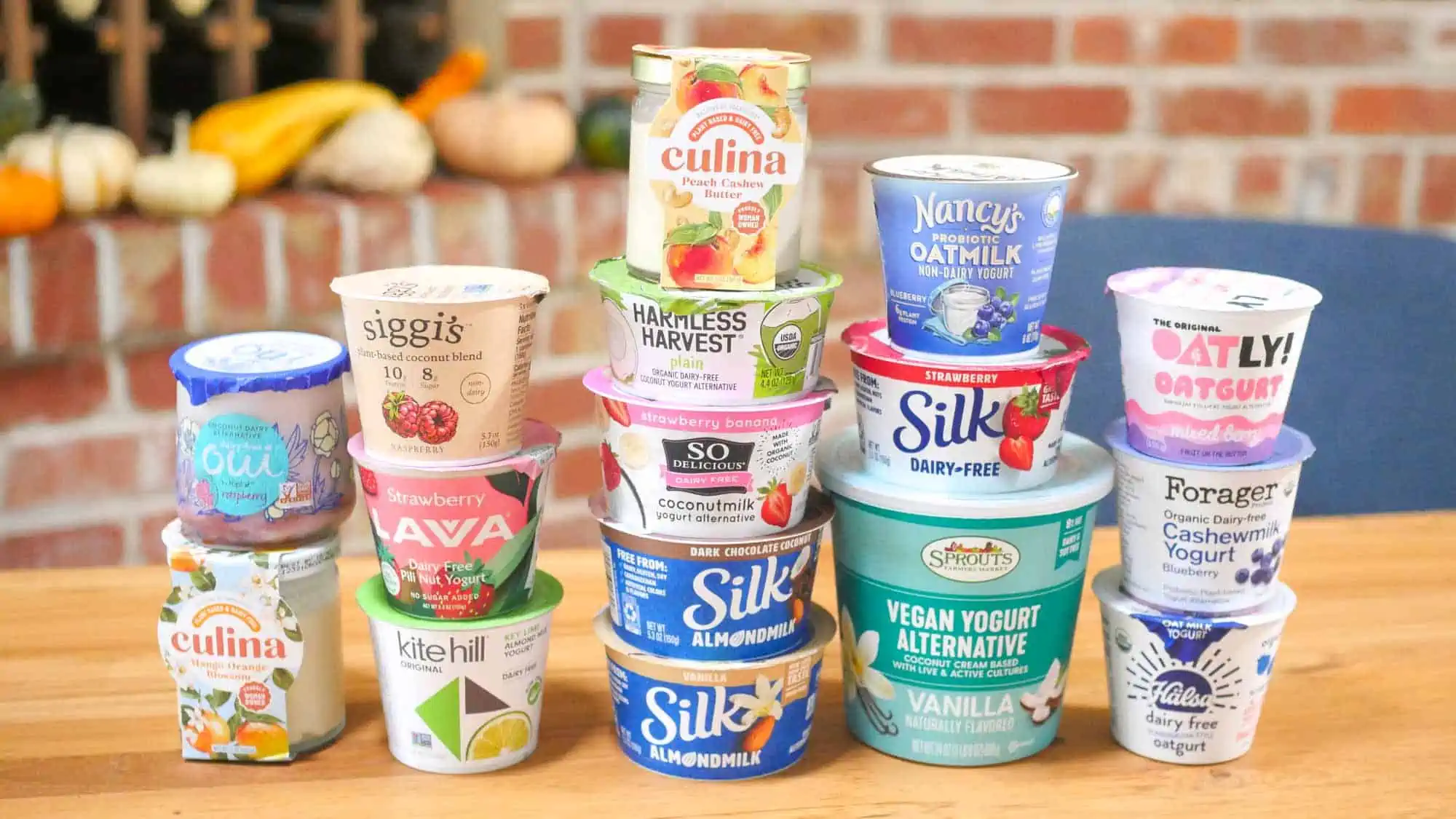
Focus on Whole Foods
While vegan substitutes can be helpful, it is important to focus on whole, nutrient-dense plant-based foods as the foundation of your diet. This includes fruits, vegetables, whole grains, legumes, nuts, and seeds.
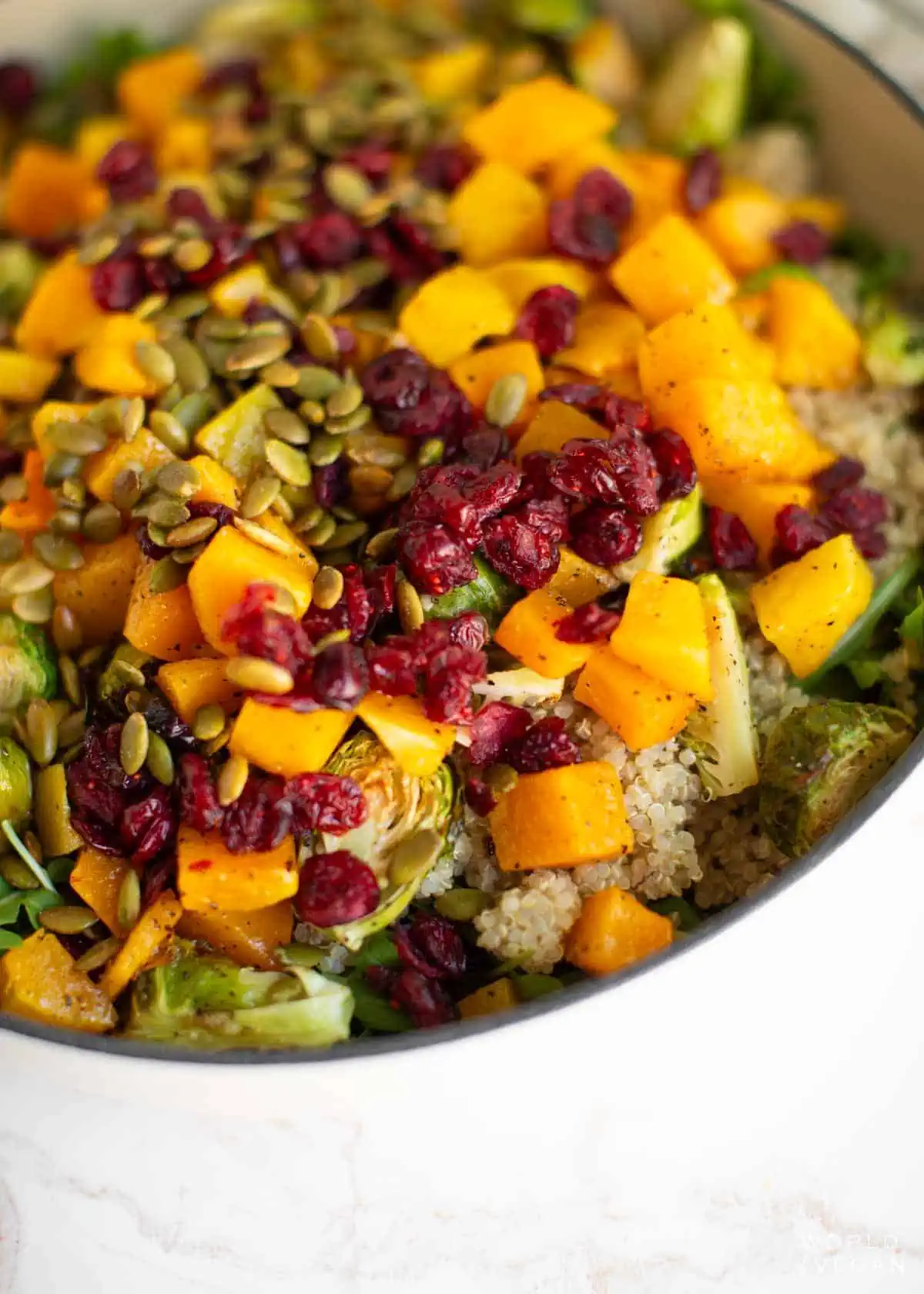
Connect with Others
Going vegan can feel isolating at times, especially if your friends and family are not supportive of your decision. Connecting with other vegans through online communities, vegan festivals and events, animal sanctuaries, plant-based restaurants near you, or local meetups can provide a sense of community and support.
The Time Is Now
There are many reasons to consider going vegan, from ethical and environmental considerations to health and social justice benefits. By adopting a plant-based lifestyle, individuals can reduce their impact on the environment, improve their health, and support fair labor practices and local food systems.
If you’re considering going vegan, take the time to do your research, and don’t be afraid to reach out to others who have made the transition. By working together, we can create a more sustainable, equitable, and compassionate world for all.



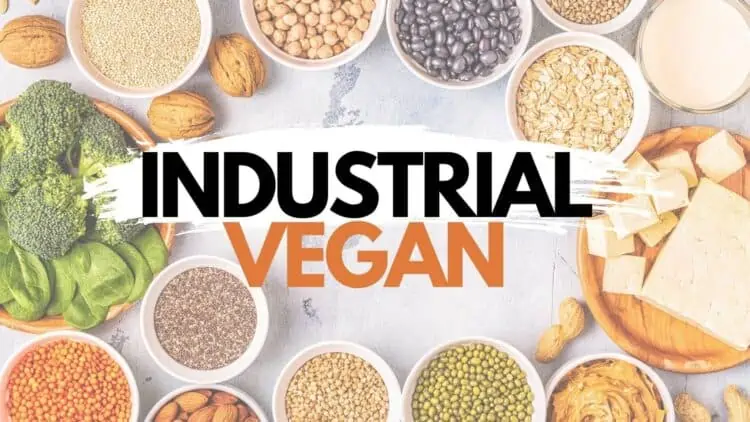
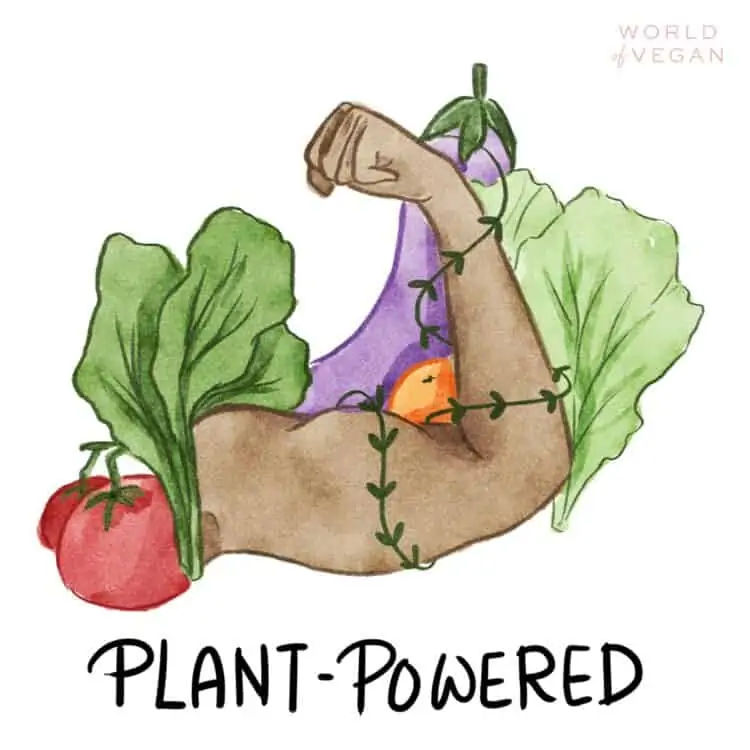

Leave a Comment